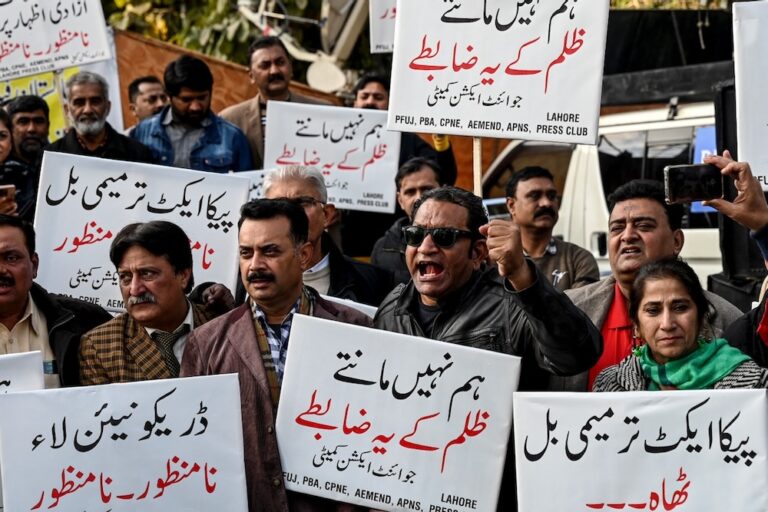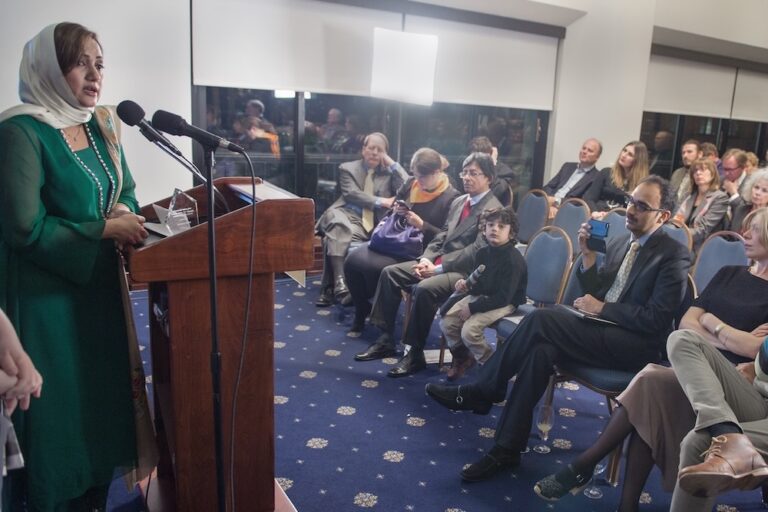(RSF/IFEX) – In a 23 June 1999 letter to Prime Minister Nawaz Sharif, RSF protested the barring of Najam Sethi, editor-in-chief of the “Friday Times”, from travelling to London to receive a human rights award. RSF expressed “its greatest concern about the harassment of Najam Sethi in particular and of critical journalists in general.” Recalling […]
(RSF/IFEX) – In a 23 June 1999 letter to Prime Minister Nawaz Sharif, RSF
protested the barring of Najam Sethi, editor-in-chief of the “Friday Times”,
from travelling to London to receive a human rights award. RSF expressed
“its greatest concern about the harassment of Najam Sethi in particular and
of critical journalists in general.” Recalling that “article 13 of the
Universal Declaration of Human Rights states that everyone has the right to
leave any country, including his own”, General Secretary Robert Ménard urged
Sharif to ensure that “the name of Najam Sethi is immediately removed from
the Exit Control List” and that “every Pakistani journalist, whatever the
opinion he peacefully expresses and investigations he makes, can travel
freely and work without fear of retaliation from the authorities.”
**Updates IFEX alerts of 11 June, 7 June, 2 June, 1 June, 31 May, 26 May, 25
May, 18 May, 12 May, 10 May, 6 May, 5 May, and 19 April**
On 23 June, Sethi was prevented from travelling to London to receive an
Amnesty International award. The Federal Investigation Agency (FIA) told him
he could not proceed and that he was on the government’s Exit Control List
of people barred from leaving Pakistan. His passport has been seized. No
explanation was given. Sethi was arrested by Pakistani intelligence services
on 8 May and held until 2 June when the authorities dropped the charges of
suspected links with the Indian intelligence agency. Sethi and several
colleagues had received threats from Pakistani officials after he gave an
interview to a British Broadcasting Corporation (BBC) television crew
working on a documentary about corruption scandals in the Pakistani
government.


